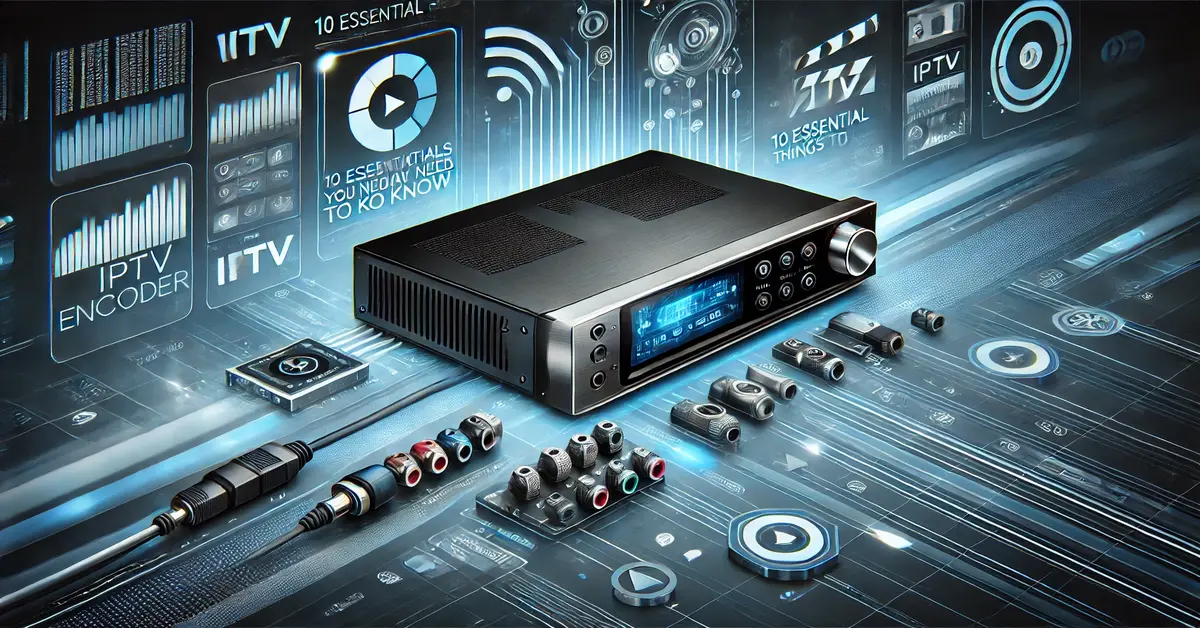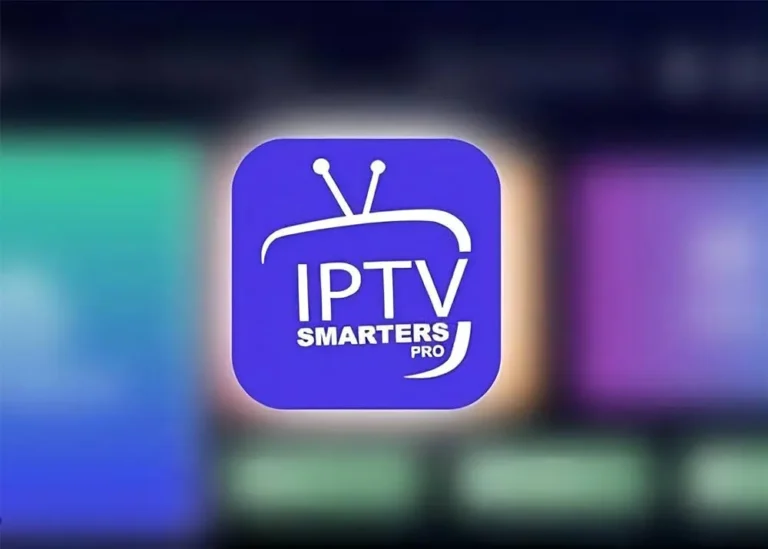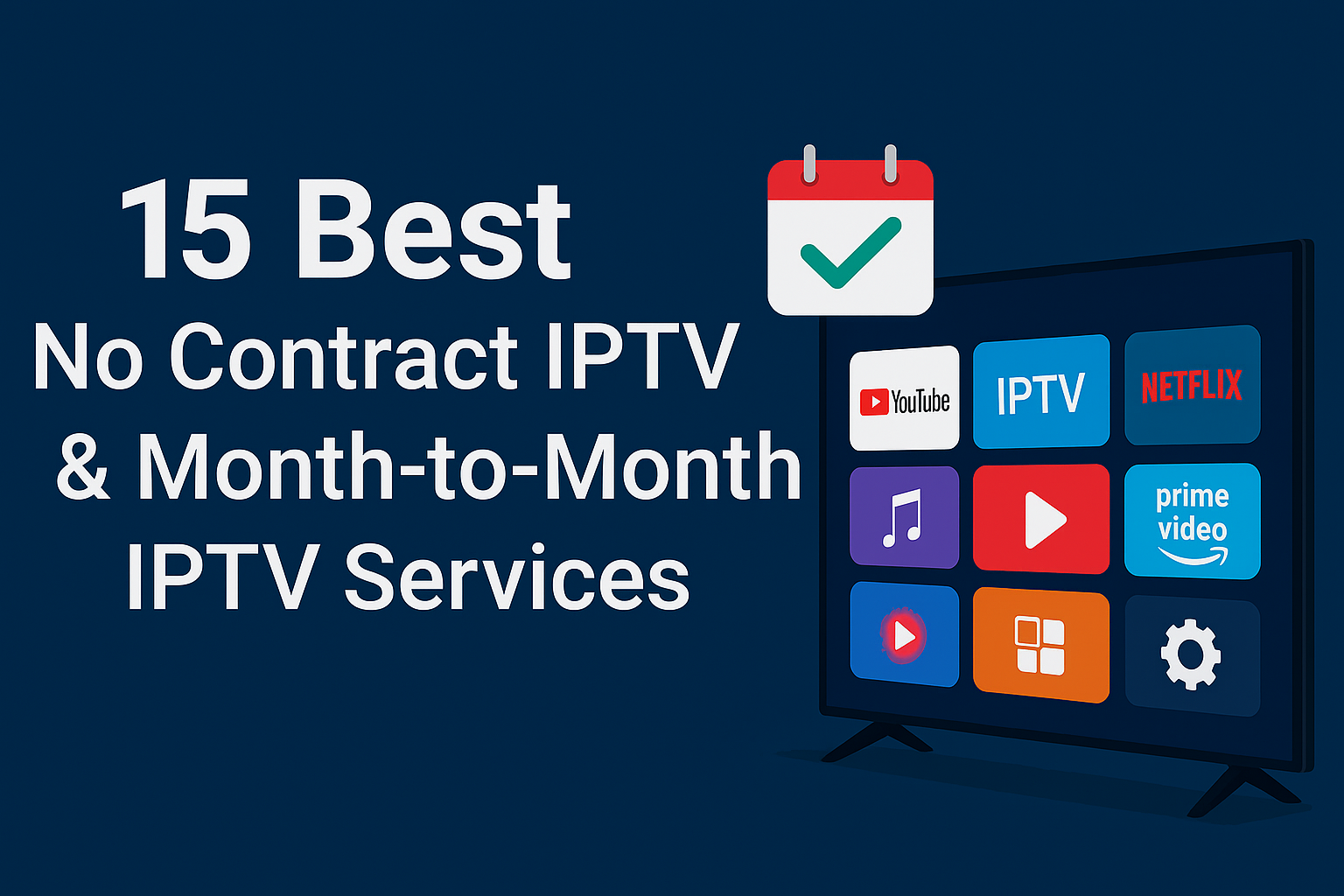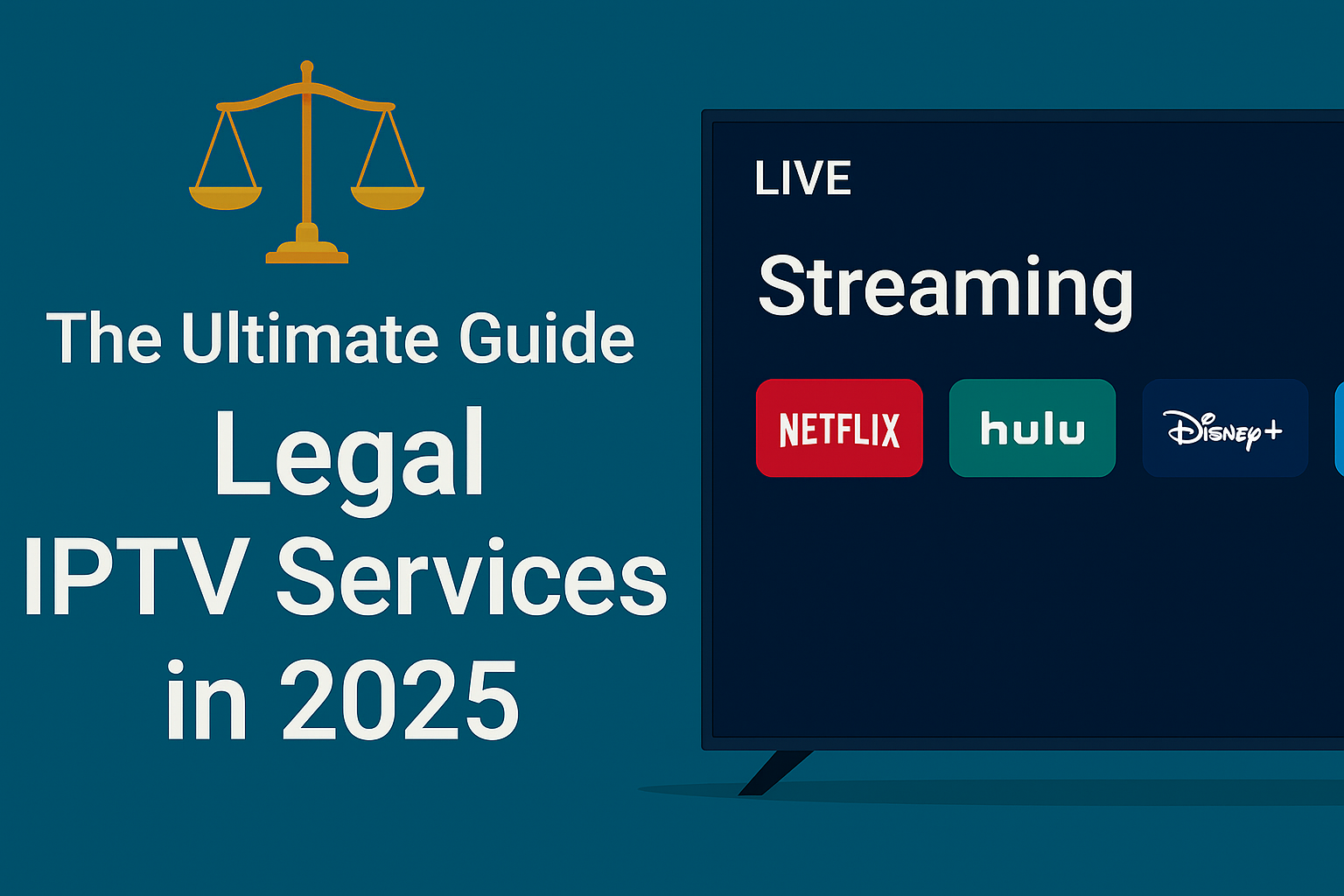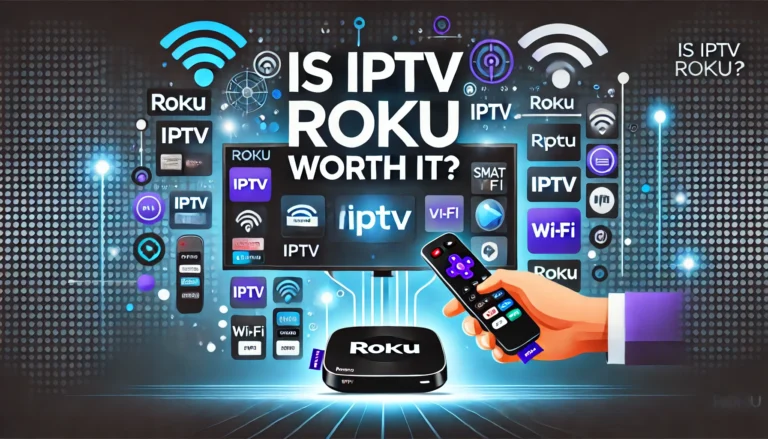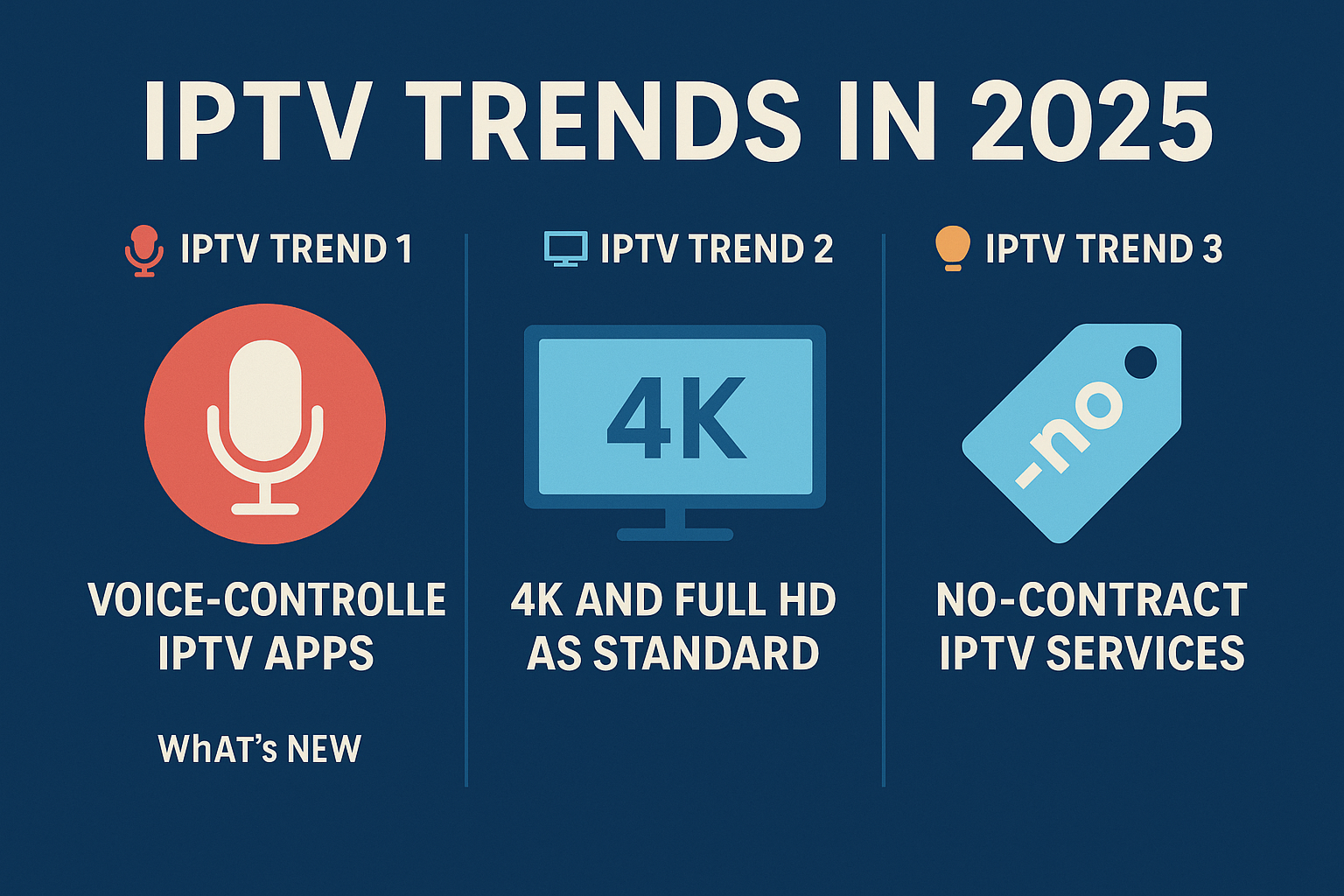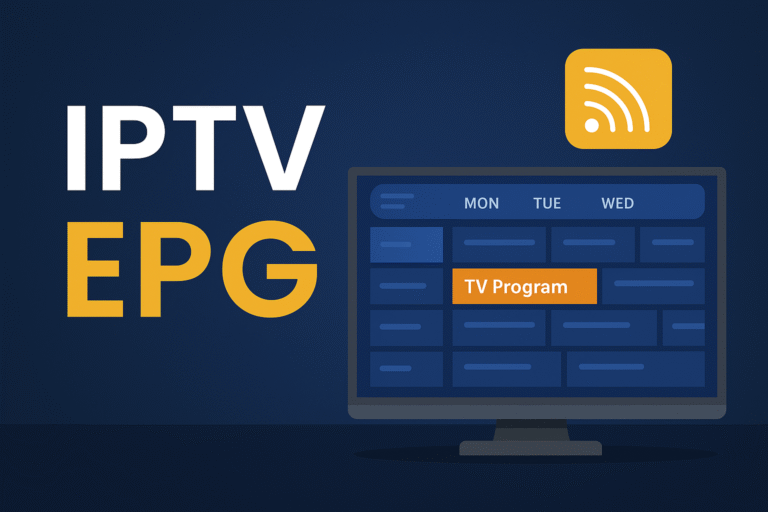10 Essential Things You Need to Know About IPTV Encoder: Perfect Guide to Understanding and Setting It Up
Meta Description: Learn everything about IPTV encoders. Understand what they are, how they work, and why they are essential for broadcasting high-quality IPTV streams. Explore types, setup, and more.
Table of Contents
Introduction
IPTV (Internet Protocol Television) has revolutionized how we consume television content, offering flexibility, cost savings, and easy access to a wide array of live and on-demand programming. However, the quality of your IPTV stream depends heavily on how the content is transmitted and encoded. This is where the encoder plays a crucial role.
An IPTV encoder converts video and audio signals into a digital format that can be transmitted over the internet to deliver high-quality IPTV streams. If you’re new to IPTV or are considering improving your setup, understanding how an IPTV encoder works is essential.
In this comprehensive guide, we’ll walk you through the various aspects of IPTV encoders, their importance, types, setup process, and troubleshooting tips. By the end, you’ll have a complete understanding of what an encoder is and how it contributes to a high-quality streaming experience.
What is an IPTV Encoder?
Definition of an IPTV Encoder
An IPTV encoder is a device or software tool that converts video and audio signals into a digital format suitable for streaming over the internet. Without an encoder, IPTV broadcasts would not be possible, as it is responsible for compressing and encoding live or recorded content so that it can be transmitted in real-time to end-users.
In simpler terms, an IPTV encoder translates raw video signals (like a live television broadcast) into a format (usually MPEG, H.264, or H.265) that can be streamed to a wide range of devices like smart TVs, laptops, and smartphones over an internet connection.
Why Do You Need an IPTV Encoder?
The need for an encoder is simple: it enables content to be efficiently broadcast over the internet. Since streaming live TV or on-demand content requires a large amount of data, IPTV encoders reduce this data load by compressing the content, making it suitable for transmission across various networks.
Without an encoder, a network could be overwhelmed by the sheer volume of data being transmitted, leading to poor quality or buffering.
How Does an IPTV Encoder Work?
IPTV encoders perform a series of tasks to ensure that video and audio content are transmitted efficiently over the internet:
- Video Capture: The encoder captures live video or recorded video files from various sources (e.g., cameras, DVD players, or servers).
- Encoding: The captured video is then converted into a compressed digital format. Popular compression standards include H.264 and H.265 (HEVC), which offer efficient compression without sacrificing video quality.
- Audio Capture and Encoding: Along with video, audio is also captured and encoded into a digital stream, using audio codecs like AAC or MP3.
- Multiplexing: After video and audio are encoded, the encoder combines them into a multiplexed format, creating a single stream of content that can be sent over the internet.
- Streaming: The final stream is then transmitted to a media server, which sends the content to end-users via the internet. This can be done via a CDN (Content Delivery Network) or directly to users via an IPTV platform.
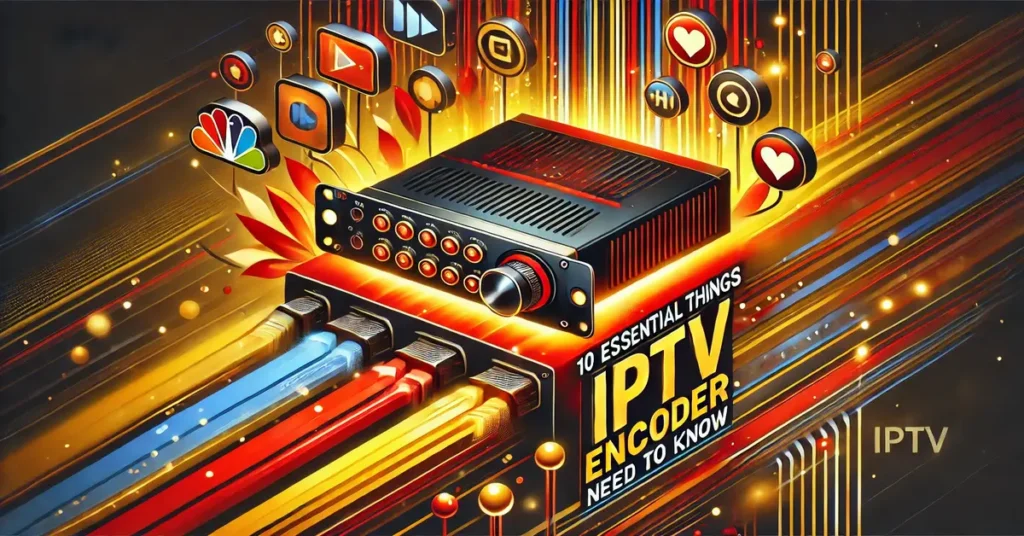
Types of IPTV Encoders
There are several types of IPTV encoders, each catering to different needs depending on the level of complexity, cost, and functionality required.
1. Hardware IPTV Encoders
Hardware IPTV encoders are physical devices designed to handle the entire encoding process. They are ideal for large-scale broadcasting, where reliability and performance are crucial.
Features:
- Dedicated Devices: These encoders are standalone machines that connect to video sources and output encoded streams.
- Professional-Grade: Used by broadcasters and content providers for high-quality encoding and stable streaming.
- Multiple Inputs: Support for multiple video and audio inputs, allowing for various content sources to be encoded simultaneously.
Pros:
- High reliability and performance
- Dedicated resources for encoding, leading to better output quality
- Built for high-demand environments, such as TV networks
Cons:
- Higher initial cost
- Requires physical space and setup
- Typically not as flexible as software-based solutions
2. Software IPTV Encoders
Software IPTV encoders are applications that run on a computer or server. These solutions are ideal for smaller IPTV setups or for those who prefer more flexibility in their encoding process.
Features:
- Software-Based: Runs on a standard computer or server, utilizing its processing power.
- Flexibility: Can be configured and customized based on specific needs, such as resolution, bitrate, and codec choice.
- Cost-Effective: Lower initial investment compared to hardware encoders.
Pros:
- Affordable and flexible
- Easy to update and maintain
- Great for small-scale broadcasters or streaming content creators
Cons:
- Dependent on the computer’s hardware performance
- May require more resources for high-quality streaming, leading to potential system overloads
3. Cloud-Based IPTV Encoders
Cloud-based IPTV encoders utilize cloud computing to perform encoding tasks remotely. These encoders are ideal for companies and broadcasters who want a scalable solution without the need for on-site equipment.
Features:
- Remote Encoding: All encoding is done in the cloud, meaning no local hardware is required.
- Scalability: Can easily scale up or down based on the volume of streams needed.
- Pay-as-you-go Model: Typically offered as subscription-based services, meaning users only pay for the resources they consume.
Pros:
- No need for physical hardware or maintenance
- Scalable, suitable for large or small streaming operations
- Accessible from anywhere with an internet connection
Cons:
- Monthly subscription fees may add up
- Relies heavily on a stable internet connection
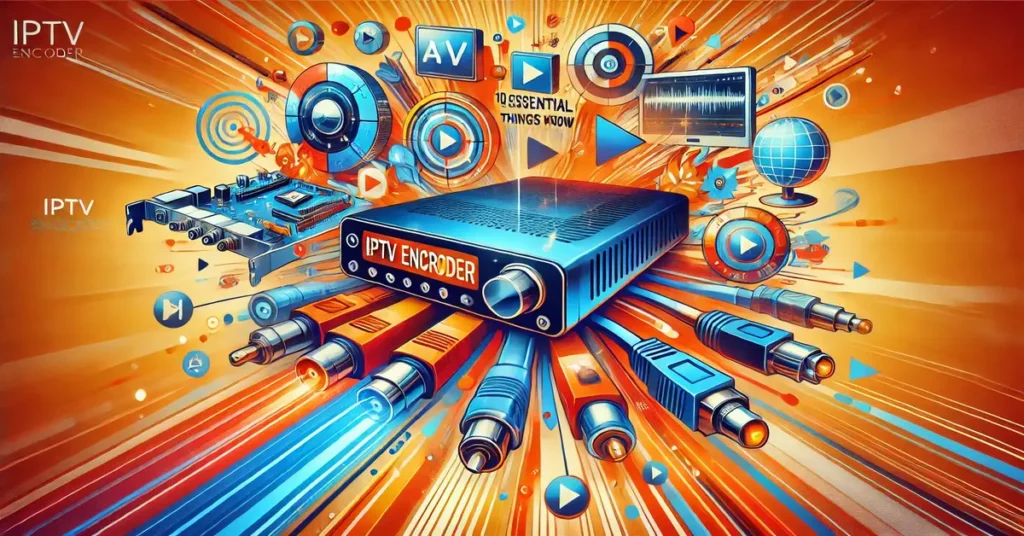
The Importance of IPTV Encoders in Broadcasting
IPTV encoders are integral to the IPTV ecosystem. Without them, high-quality content delivery to end-users would be impossible. Here are a few reasons why encoders are critical in broadcasting:
1. Optimizing Streaming Quality
The quality of your IPTV stream is directly influenced by the encoder. A high-quality encoder ensures smooth, high-definition video and clear audio. The compression used by the encoder reduces the bandwidth needed for streaming, preventing buffering and providing a seamless experience for viewers.
2. Scaling Content Delivery
For IPTV providers who deliver content to a large number of users, the encoder’s ability to handle multiple streams simultaneously is crucial. It ensures that content can be broadcast to millions of viewers without affecting quality.
3. Real-Time Encoding for Live Broadcasts
For live broadcasts, encoding must be done in real-time, without delays. Encoders are designed to handle this challenge, providing real-time streaming that allows viewers to watch live events without interruptions or delays.
How to Set Up an IPTV Encoder
Setting up an IPTV encoder involves several steps, from connecting the device to configuring it for optimal streaming. Here’s a basic guide on how to set up an encoder:
1. Connecting the IPTV Encoder
- Hardware Encoder: Connect your camera, DVD player, or any video source to the encoder’s input port (usually via HDMI, SDI, or composite video).
- Software Encoder: Install the software on your computer and connect the video source to your computer through a capture card or USB video device.
- Cloud Encoder: Log in to the cloud service, configure the video source, and connect to the cloud via a stable internet connection.
2. Configuring the Encoder for IPTV
- Choose Video Format: Select the video format (e.g., H.264, H.265) that suits your needs for resolution and compression.
- Adjust Bitrate and Resolution: Set the encoder to deliver the appropriate bitrate and resolution (1080p for HD or 4K for ultra-high-definition).
- Configure Audio Settings: Choose the audio codec (e.g., AAC) and adjust audio levels.
3. Test Streaming
Before going live, always test your encoder setup to ensure that the video and audio are synced and that the stream quality is acceptable. Verify the stream by viewing it on different devices to ensure there is no buffering or latency.
Benefits of Using an IPTV Encoder
An IPTV encoder is a powerful tool for anyone looking to stream high-quality content online. Here are some key benefits:
- Efficient Streaming: Encoders help reduce the size of video files without compromising on quality, leading to smooth streaming even on slower networks.
- Live Broadcasts: Real-time encoding allows for smooth live broadcasts with minimal delay.
- Cost-Effective: Reduces the need for expensive broadcasting equipment or high-bandwidth connections.
Choosing the Right IPTV Encoder for Your Needs
When choosing an IPTV encoder, consider the following factors:
- Budget: Hardware encoders tend to be more expensive than software or cloud-based solutions.
- Streaming Quality: If you’re delivering high-quality content like 4K video, you’ll need an encoder that supports higher resolutions and better compression algorithms.
- Scalability: Consider how many streams you’ll need to handle and whether you need a solution that can scale as your business grows.
Troubleshooting Common IPTV Encoder Issues
1. Poor Video Quality
If your stream looks pixelated or blurry, it may be due to incorrect bitrate settings or poor compression. Adjust the bitrate and try switching to a different codec.
2. Audio/Video Sync Issues
Audio and video sync issues can occur when encoding in real-time. Ensure that the encoder is configured to process both audio and video signals simultaneously without delay.
3. Buffering
Buffering may be caused by a slow internet connection or too high a bitrate. Lowering the bitrate or upgrading your internet connection can resolve this issue.
Learn more about IPTV Troubleshooting Tips.
Conclusion
An IPTV encoder is essential for anyone who wants to stream high-quality IPTV content. Whether you’re a content creator, broadcaster, or IPTV service provider, understanding how encoders work and how to set them up will help ensure that your viewers enjoy a seamless, high-quality experience. By selecting the right encoder for your needs, configuring it properly, and troubleshooting any issues that arise, you’ll be able to deliver top-notch content across any device.
External Resources:
